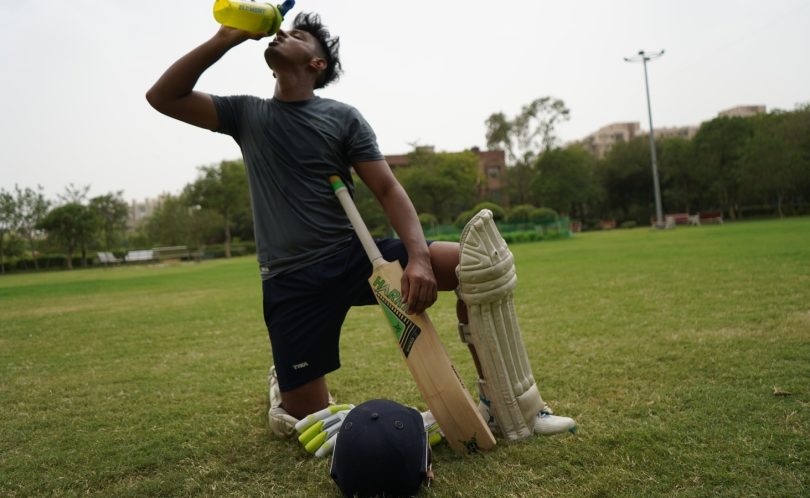[ad_1]
One would think all sportsmen are incredibly fit and while that is true to a large extent, they are all prone to specific injuries depending on the respective sport as stresses of performance and competition adversely affect their health too. As per health experts, every athlete has had one or more of the below:

- Muscle tears and tightness
- Ankle sprains
- Knee ligament injuries
- Stress fractures
- Groin and Back pain
Certain individuals are more prone to specific problems owing to their genetics. In an interview with HT Lifestyle, Dr Yogeesh D Kamat, Consultant Orthopedician and Sports Medicine at KMC Hospital in Mangalore, revealed, “At least a fifth of us have flat feet and knock kneedness. Pursuit of running sports would make these prone to ankle injuries and foot strains and also result in higher knee cruciate ligament injuries. It is necessary to educate parents and coaches to inspect children when they make choices for pursuing specific types of sports such that they can be directed into making the right choices in the beginning itself rather than suffer from repeated injuries.”
He explained, “The majority of youngsters who undertake competitive events work hard to train. However, during their sessions, they think of the muscle stretching period as relaxation time and end up not doing adequate stretches. This in turn makes way for greater injuries and tightness and is further reinforced by bad postures which children are increasingly developing due to rapid increase in use of electronic devices. Education about posture and stretches should be incorporated for adults at the workplace and for children at early school level as prevention is better than cure.”
Dr Yogeesh D Kamat highlighted, “Certain defects in the hip or spine bones that are present since birth can also result in knee and back pain with muscle (hamstring) tightness. Diet and nutrition as well as regular rather than sporadic exercise are the best ways for increasing fitness. Lastly, in the occurrence of injuries, adequate attention at the right time by examination from a sports specialist will help return to sport as modern treatments enable reliable cure in almost all ailments.”
Bringing his expertise to the same, Dr Basavaraj CM, HOD, Senior Consultant Orthopedics and Joint Replacement Surgeon at BGS Gleneagles Global Hospitals in Bengaluru, insisted, “Athletes require a proper balance of exercise, rest, and nutrition to maintain fitness and performance while minimising the risk of injury. As an orthopaedic doctor, I emphasise the importance of evidence-based approaches to athlete health and fitness.”
He revealed some major health tips for athletes based on current scientific research:
- Optimise Your Training Program
Research has shown that optimal training programs include progressive overload and periodisation, which involve gradually increasing the intensity and duration of your workouts over time while allowing for adequate rest and recovery. This approach helps to prevent overuse injuries and improve performance. A qualified coach or trainer can help you develop a customized training program based on your individual needs and goals.
2. Incorporate Resistance Training
Resistance training, including weightlifting and bodyweight exercises, can help to improve muscular strength, power, and endurance. Research has shown that resistance training can also help to prevent injuries by improving neuromuscular control and increasing bone density. Make sure to include resistance training exercises that target major muscle groups and work with a qualified trainer or coach to ensure proper form and technique.
3. Prioritise Recovery
Rest and recovery are essential components of any athlete’s fitness routine. Research has shown that adequate sleep, nutrition, and active recovery methods such as massage and foam rolling can help to improve recovery and prevent injuries. It’s also important to avoid overtraining and listen to your body for signs of fatigue or injury.
4. Address Nutritional Needs
A well-balanced diet that includes a variety of macronutrients, micronutrients, and hydration is important for optimal athlete health and performance. Research has shown that carbohydrates are the preferred fuel source for high-intensity exercise, while protein is important for muscle repair and recovery. Hydration is also critical for preventing dehydration and maintaining optimal performance.
5. Address Injury Prevention
Injury prevention should be a key component of any athlete’s fitness routine. This includes wearing proper equipment, such as footwear and protective gear, as well as implementing strategies such as warm-up and cool-down exercises, stretching, and balance training. Working with a qualified coach or trainer can help to identify areas of weakness or imbalance that may increase the risk of injury.
By following these major health tips based on current scientific research, athletes can optimise their fitness and performance while minimising the risk of injury. It’s important to work with a qualified coach or trainer and to seek medical attention if you experience any pain or discomfort during your workouts.
[ad_2]
Source link








